Top 6 Low Sugar Fruits For A Healthy Diet
Low-Calorie Low Sugar Fruits
Low sugar fruits include strawberries and raspberries, avocado, grapes, lemons, and kiwi. These fruits contain a variety of nutrients. And they can be enjoyed as part of a balanced diet. The natural sugar in fruit is not harmful to the body. Because it contains fiber, vitamins, and minerals, which are beneficial for the body. Fruits with low sugar content also bring many other health benefits. For example, reducing weight reduces the risk of heart disease. Helps maintain good skin and improve mental health by eating certain foods. Excess sugar increases the caloric intake of the body, which helps in weight gain. Therefore, natural sugar is a good alternative in this case. Reducing the amount of sugar you consume can reduce blood pressure and inflammation, which can help reduce the risk of heart disease. High sugar intake can lead to weight gain, insulin resistance, fatty liver disease, and an increased risk of heart disease and certain types of cancer. So we need to keep sugar low in our diet. This will improve our health. You should take a daily dose of vitamin C, which is a good source of vitamin C, and it is a good source of antioxidants. Dietary fiber helps normalize blood sugar levels by slowing the rate at which glucose enters the bloodstream after digestion.
1. Blackberries
Blackberries are a low-sugar fruit and can be a healthy addition to a diabetic’s diet, due to their high fiber content and low glycemic index. Blackberries have a glycemic index of 25, which is considered low, meaning they don’t cause significant spikes in blood sugar levels. They are also rich in fiber, which helps regulate blood sugar by slowing down sugar absorption. Fresh blackberries have antioxidants and anti-inflammatory properties, Fiber, and tons of vitamin C. One cup of blackberries has more vitamin C than a small tangerine or lime.
Benefits Of Blackberries
- Rich in antioxidants: Blackberries contain potent antioxidants like anthocyanins, which can help protect cells from damage caused by free radicals and reduce the risk of chronic diseases like cancer and heart disease.
- Boost brain function: Studies suggest that blackberries can improve memory and cognitive function, potentially reducing the risk of age-related cognitive decline.
- May improve oral health: Research suggests that blackberries may contribute to good dental health.
- Support heart health: Blackberries may help lower LDL cholesterol levels and improve overall cardiovascular health.
- Good source of fiber: The fiber in blackberries promotes healthy digestion, helps regulate blood sugar. Levels can contribute to weight management by promoting feelings of fullness.
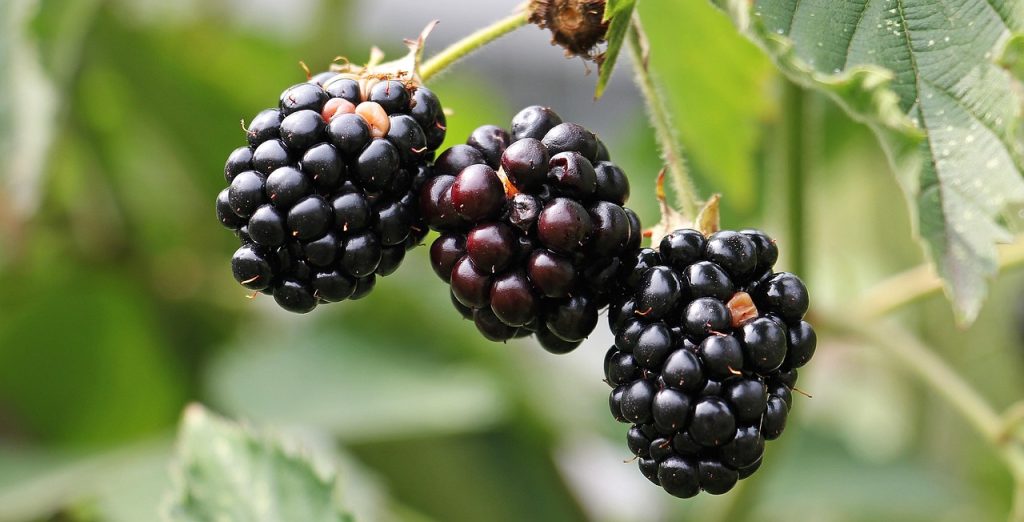
2. Cherries
Cherries are small, like one fruit, like apricots, plums, and peaches, that are high in vitamin C and potassium. You make fruit salsa with cherries or eat a harmful as a snack. Cherries are small, round, stone fruits that are typically in season during the summer months. They come in two main categories: sweet and sour, with sweet cherries often eaten fresh and sour cherries frequently used in cooking or juicing. Cherries are packed with nutrients and antioxidants. Offering potential health benefits, improved sleep, reduced inflammation, and better heart health. Cherries offer a range of health benefits due to their nutrient content and the presence of beneficial compounds. They are a delicious and healthy addition to a balanced diet.
Benefits Of Cherries
- Improved sleep: Cherries contain melatonin, a hormone that regulates sleep-wake cycles, which may help improve sleep quality. Particularly for those with sleep disturbances.
- heart healthy: Cherries are rich in potassium and antioxidants like polyphenols, which can help lower the risk of heart disease by reducing inflammation and supporting healthy blood pressure.
- Other potential benefits: Cherries have also been linked to improved blood sugar levels, lower cancer risk, and overall nutritional value.
- Reduced Inflammation and Pain: Cherries contain compounds that can help reduce inflammation and oxidative stress, potentially alleviating. Symptoms of arthritis and muscle pain.
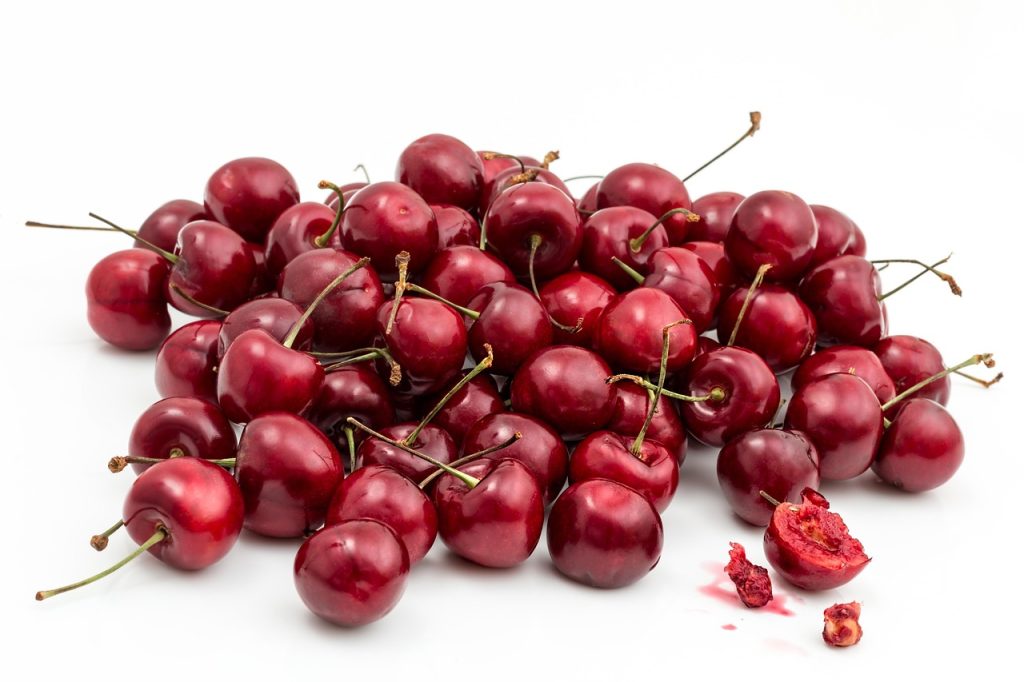
3. Watermelon
Watermelon is a pink, hydrating fruit that is more than 90% water. It has vitamin A, C, and the antioxidant lycopene. For an essay snack, cut a whole watermelon at once. Cut watermelon can stay in the refrigerator for five days. Watermelon is a delicious and healthy fruit. It helps to keep the body cool during summer and prevents various diseases. The main benefits of watermelon are.
Benefits of Watermelon
- Helps in weight loss: Watermelon is low in calories and high in water content. This helps in weight loss.
- Boosts immunity: Due to the presence of vitamin C, it helps boost immunity.
- Rich in vitamins and minerals: Watermelon is rich in vitamins A, C, and potassium
- Good for skin: Due to the presence of vitamins A, B, and C, it moisturizes the skin and helps keep it healthy.
- Benefits for heart disease: The amino acid citrulline in watermelon dilates blood vessels and improves blood circulation, which reduces the risk of heart disease.

4. Kiwis
Kiwis are green or yellow fruit with a fuzzy, brown skin. While you can eat the skin, many people prefer to remove it. Kiwis are packed with vitamin C, and research has shown that eating two sun gold kiwis per day replaces the need for vitamin C supplements. One medium green kiwi fruit, also known as a Chinese gooseberry, is an oval-shaped edible berry from the genus. It has a brown, fuzzy skin and vibrant green flesh dotted with fine black seeds. Kiwis are known for their unique, tangy-sweet flavor, often compared to a mix of strawberry, rhubarb, and gooseberry.
Benefits Of Kiwis
- Protects eye health: The antioxidants and vitamin A, present in kiwi fruit one beneficial for eye health, and help prevent various eye diseases.
- Rich in antioxidants: Kiwi fruit contains a large amount of antioxidants that eliminate free radicals in the body and protect the body’s cells from damage.
- Improves digestive health: The fiber in kiwi fruit improves digestive health and helps prevent constipation.
- Boost immunity: kiwi fruit contains a lot of vitamin C, which helps boost immunity and protect the body from various diseases.
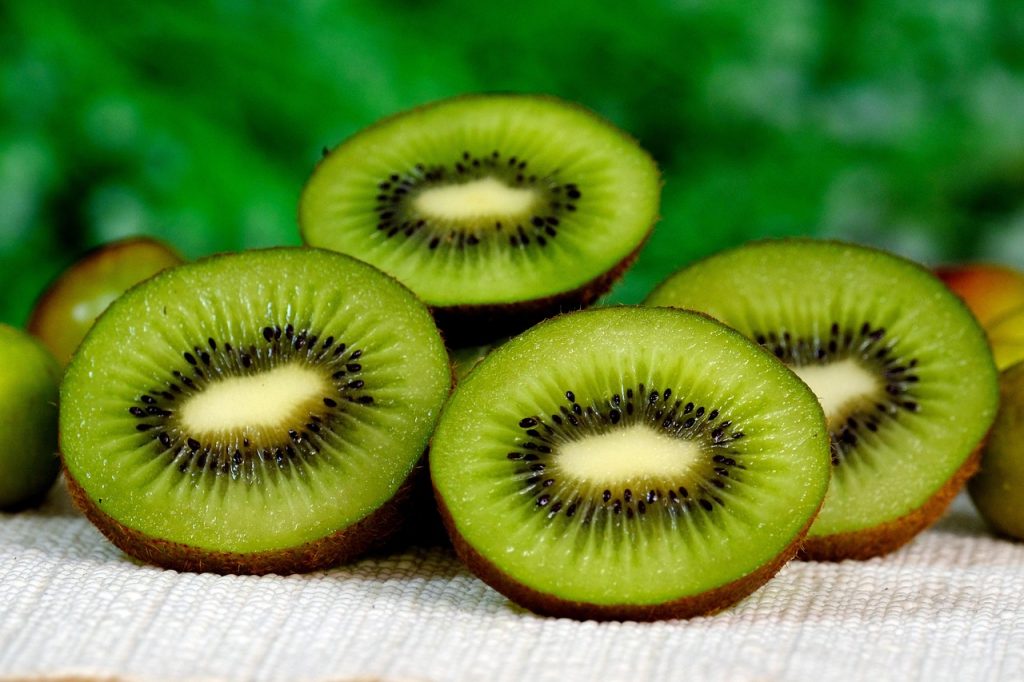
5. Pineapples
Pineapples are yellow tropical fruits with spiky green brown skin and a crown of leaves on top. These fruits have manganese, an immune-supporting vitamin C, and the anti-inflammatory enzyme bromelain. A half cup of fresh pineapple has 9 grams of sugar, while a half cup of canned pineapple chunks in heavy syrup has up to 25 grams of sugar, so you may want to eat canned pineapple in moderation. A pineapple is a multiple fruit, meaning it develops from the fusion of multiple flowers on a single stem. The fruit has a rough, scaly exterior and a juicy, sweet flesh that can be pale cream to yellow.
Benefits Of Pineapple
- Flatulence: Eating pineapple at night can cause flatulence.
- Diabetes: Pineapple is high in natural sugar, which can be harmful for diabetics.
- Gastritis: People with gastritis should avoid pineapple, as it can aggravate stomach problems.
- Beneficial for the skin: Pineapple moisturizes the skin and increases radiance.
- Aids in digestion: The enzyme bromelain in pineapple aids in digestion, or gas and heartburn problems.
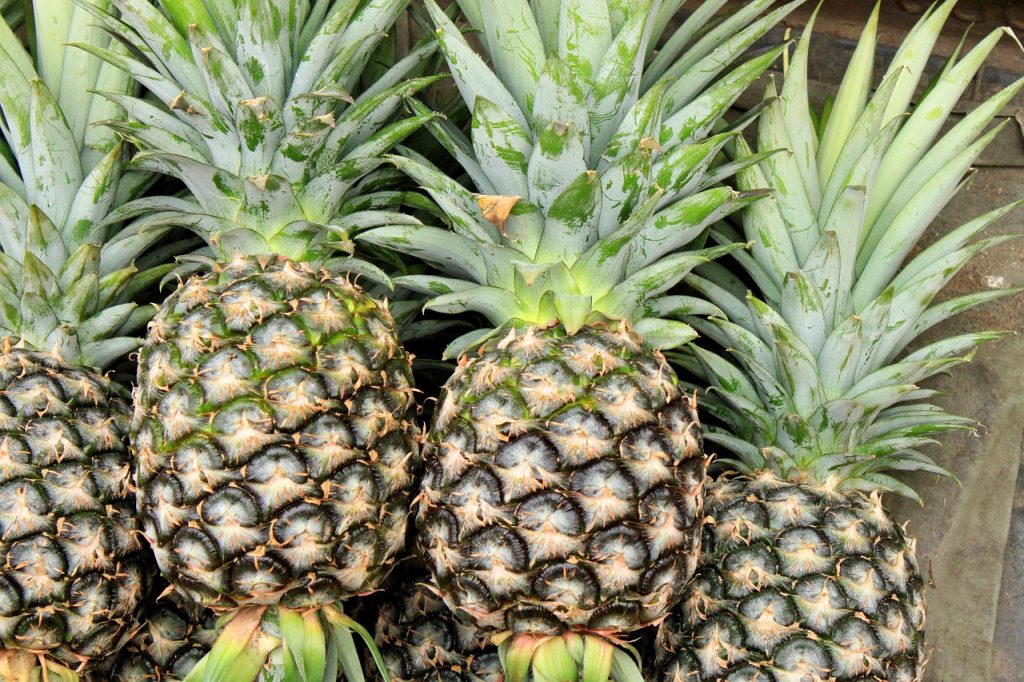
6. papaya
Papaya is a tropical orange fruit filled with round black seeds. It contains antioxidants, potassium folate, and vitamins A, C, and E you can scoop the vibrant flesh out with a spoon or add cubed papaya to salads or smoothies. People who have a latex allergy may also experience an allergic reaction to papaya, because this fruit contains proteins that are similar to latex proteins. Ripe papayas are sweet and juicy, often compared to a combination of mango and melon. Papayas are large, fleshy fruits, typically pear-shaped, with a smooth skin that turns from green to yellow or orange when ripe.
Benefits Of Papayas
- Papaya is a nutritious fruit: it contains vitamins A, C, E, magnesium, potassium, and minerals. It is also low in calories. Eating papaya on an empty stomach is physically beneficial, eaten in the morning or at night whenever.
- heart healthy: The potassium in papaya helps reduce the risk of heart disease.
- Improves digestion: The enzyme papain in papaya aids in digestion and helps reduce constipation.
- Immunity: The antioxidants in papayas help boost immunity.
- Cancer prevention: Papaya’s antioxidants are helpful in reducing the risk of some cancers.
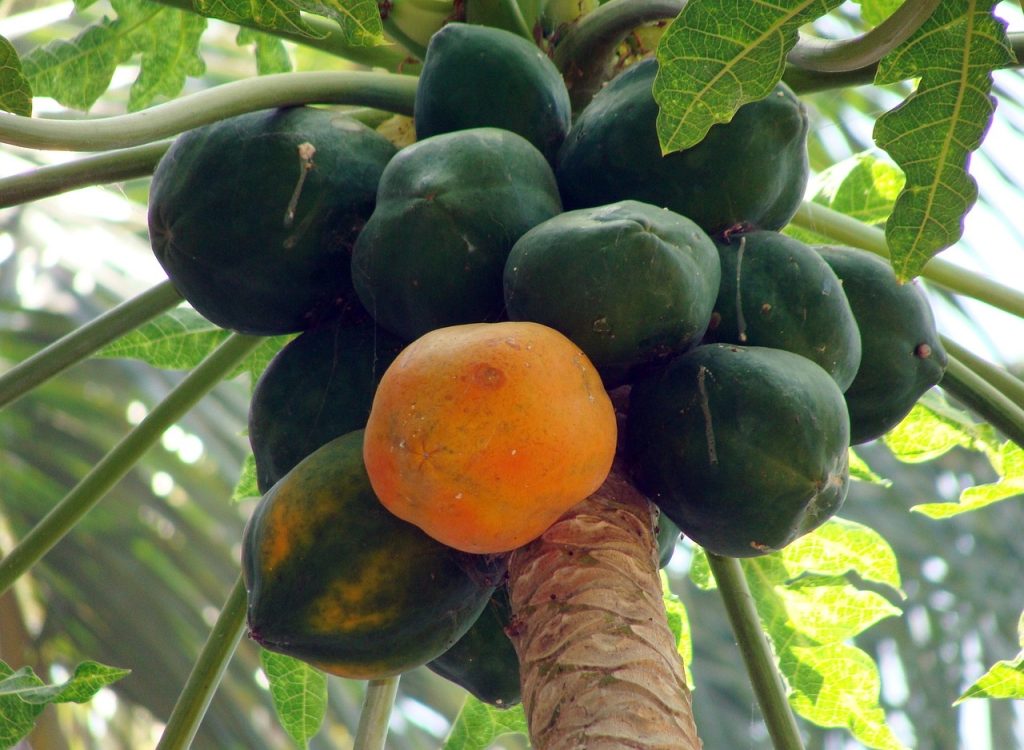
Frequently Asked Questions
What fruit is highest in sugar?
While the highest sugar content like dates and figs, and pomegranates, fresh fruits with high sugar content include bananas, mangoes, grapes, and pineapples; these fruits are also rich in vital vitamins, minerals, and fiber.
What fruit is lowest in sugar?
The fruits with the lowest sugar content are lemons, limes, and avocados, with minimal sugar per fruit, around 1-2g. Berries, such as raspberries and blackberries, as well as other fruits like cranberries, typically have low sugar levels.
Which fruit is best to reduce sugar?
Fruits like berries, apples, citrus, cherries, kiwi, and avocados are considered best for managing blood sugar levels due to their high fiber, low sugar, and beneficial nutrients.
Which fruit has the most sugar?
Fruits like grapes, overripe bananas, mangoes, and pineapples are high in natural sugar.
Conclution
Low-sugar fruits are an excellent choice for maintaining a healthy diet, controlling blood sugar levels, and enjoying natural sweetness. Without excess calories, choosing low-sugar fruits is a simple step toward better health. They keep your diet balanced, your energy steady.
